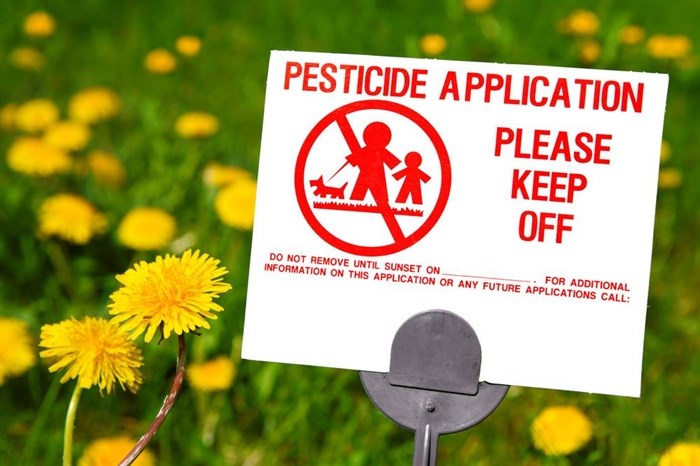
Image Credit: Shutterstock
December 16, 2015 - 1:15 PM
KAMLOOPS - A ban on pesticide use on residential ornamental shrubs, flower beds and grass now extends to city parks and properties in Kamloops.
In a split 5-4 vote yesterday, Dec. 15, council voted to extend the ban to include all civic properties and city parks. Council had already agreed to implement a residential ban, which will begin Jan. 1, 2016.
The city already uses pesticides very sparingly, parks director Byron McCorkell told council. He said the city uses an integrated pest management system which alternates the use and quantity of pesticides with other methods like vinegar. He expects completely phasing the practice out and switching to all organic means will cost roughly $30,000.
City sports fields will not be included in the scope of the ban. Only five of the city’s 70 fields were treated with pesticides in the past year, McCorkell said, and they were only sprayed when the playing season ended. Council agreed with his assessment that sports fields are commercial space and pesticide use is warranted to maintain their value.
Council was split along the same lines as during the residential debate, with the same councillors who were against the residential ban bylaw against the municipal ban bylaw.
Coun. Arjun Singh said the original pesticide ban has been a contentious issue and, in order to not appear hypocritical, the same rules should apply to city properties. Coun. Dieter Dudy agreed, noting it would not serve the city well if it did not lead by example.
Mayor Peter Milobar reiterated what he has said all along, he believes the ban on cosmetic pesticides is an unenforceable bylaw. Pesticides are still legally available and whether the city sprays their flower beds or not likely won’t deter anyone. He was particularly upset about the added costs associated with the ban, noting he feels very uncomfortable spending tax dollars promoting a bylaw the city couldn’t enforce.
In addition to the $30,000 cost, McCorkell proposed another $25,000 to be spent on public education, which could include brochures and videos, workshops partnering with Thompson Rivers University or a demonstration garden to educate homeowners on the alternatives to pesticides. Council also agreed to the additional cost for public education.
To contact a reporter for this story, email Dana Reynolds at dreynolds@infonews.ca or call 250-819-6089. To contact an editor, email mjones@infonews.ca or call 250-718-2724.
News from © iNFOnews, 2015